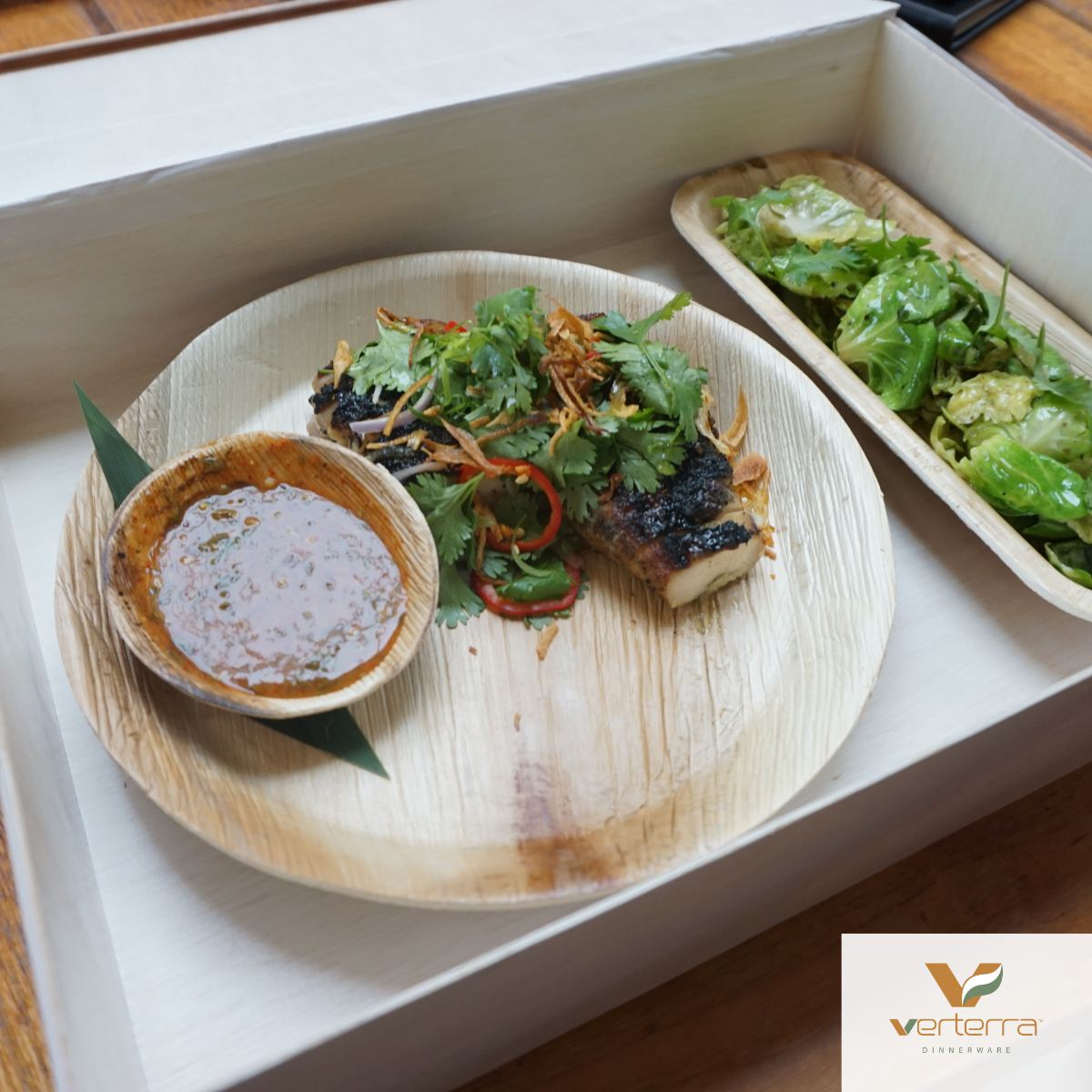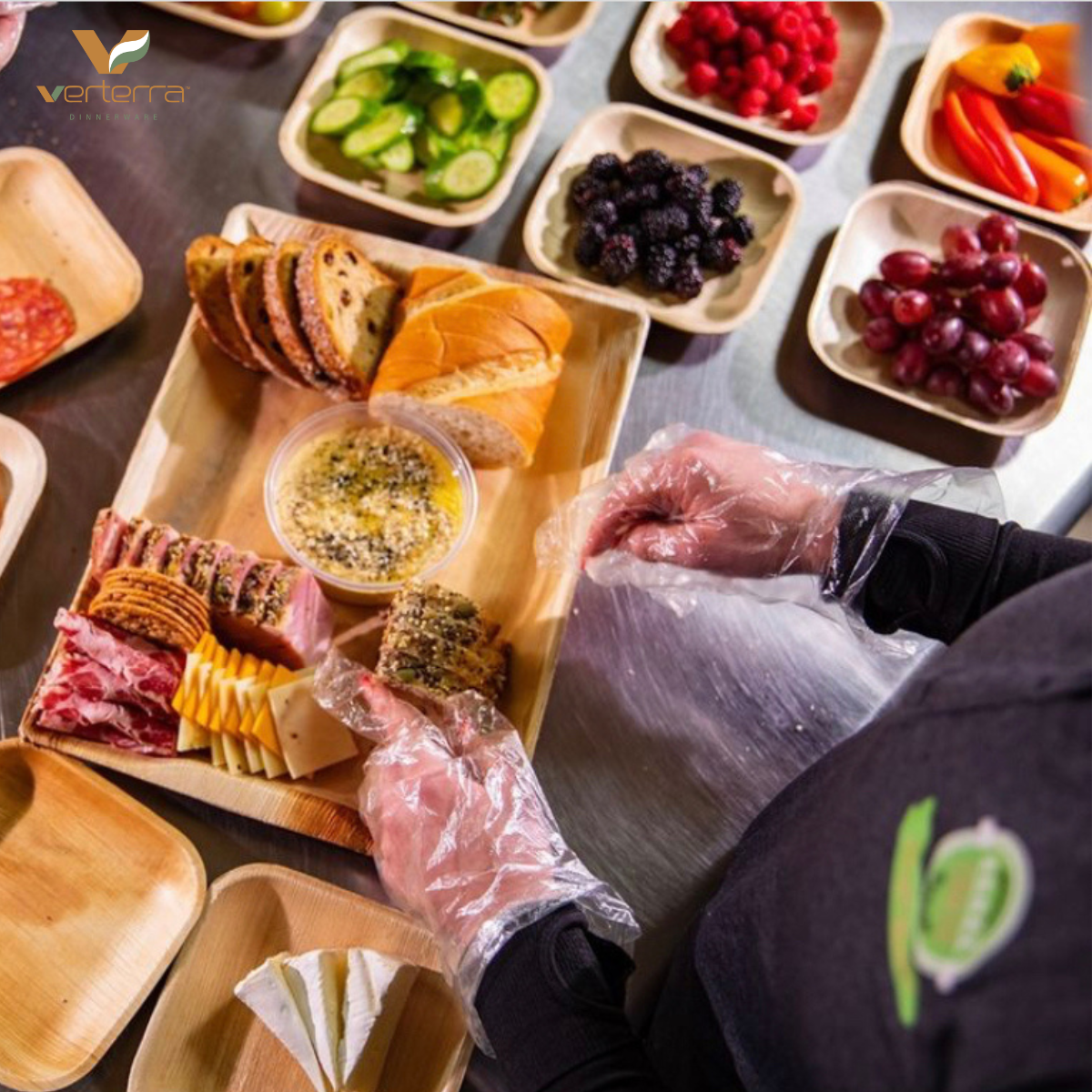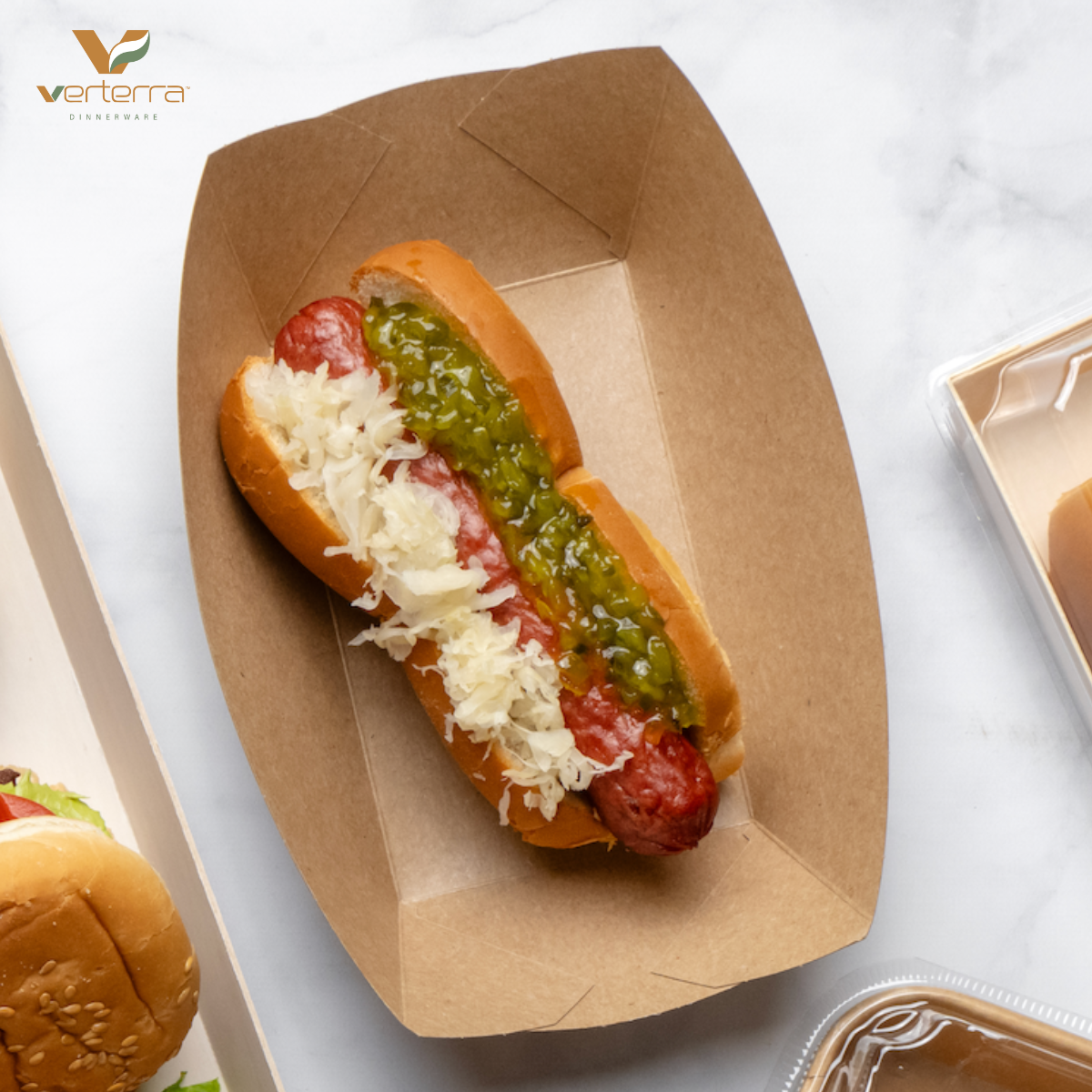
Part 2 of 2 : A Guide to Easy Composting for Catering Businesses
The difference between biodegradable and certified compostable
Compostable dinnerware makes composting for catering easy, because it reduces the need to segment waste. It’s important to choose products that are certified compostable by BPI — a third party that certifies products in North America.
As you’re shopping for single-use dinnerware, you may come across products that are labeled as “biodegradable.” Biodegradable is a scientific term that does not equate to compostable. The label “biodegradable” is often slapped onto products that mimic compostable products, causing widespread confusion about what can and cannot be composted. In fact, products labeled as “biodegradable” are the leading cause of contamination in compost sites, undermining sustainability efforts. The misinformation is so pervasive that some states are banning the use of the label “biodegradable.”
In addition, there are some products made from natural materials that are not compostable. Bamboo is a great example. Because bamboo is natural, many people assume it is compostable. While bamboo will eventually degrade, it doesn’t do so at a fast enough rate to be compostable. Another culprit in compost-mimics is paper and wood products sealed with non-compostable materials like wax, or even processed in bleach. These products would contaminate any compost site.
With the rampant lookalikes and confusion over what is compostable, the only safe decision is to choose products that are certified as compostable. BPI is the leading third party organization that laboratory and real-world tests products to ensure they are compostable.
VerTerra offers BPI-certified compostable dinnerware options for catering businesses. Our comprehensive line of products not only includes dinnerware and flatware for service, but compostable solutions for transporting food as well.
Easy composting for catering
Composting for catering doesn’t have to be difficult or time consuming. In fact, with the right products, composting can fit seamlessly into your business plan.
Commercial composting programs around the country make it easy to choose composting as a one-stop solution for waste management. Commercial composting plants compost on a large scale, which means they can handle less optimal materials like bones and high acid foods. These plants use a little bit of heat and air flow to create the perfect environment for composting on a large scale. Compost is then sold to farms and private consumers.
There are over 4,700 compost manufacturers in the U.S. today, and as sustainability becomes more of a concern, that number will only grow. Working with a commercial composting program makes composting for catering as simple as taking out the trash. Some compost programs will even pick up your compost for you, while others do require transporting the compost to their site.
If you’re not sure there’s a commercial composting program in your area, another option is to contact local farms in your state. Farms are always in need of compost, and some farms will even produce their own. There are many creative ways to collaborate with farms. You can contribute to their compost piles in exchange for produce, for example.
An easy way to simplify composting for catering is to tailor your menu to produce balanced compost. If you’re composting with a commercial plant, this becomes less important. Either way, you’ll want to avoid large amounts of high-acid food and bones.
The biggest hurdle to composting for catering is the need to separate out the compost from the trash and recyclables. Choosing a BPI-certified compostable dinnerware product can help reduce the need for sorting through trash. If all of your dinnerware, flatware, and napkins are compostable, then guests can throw food and dinnerware out in the same bin.
VerTerra produces BPI-certified compostable dinnerware out of palm leaves. Our palm leaves are sourced from fallen leaves, and then made using only steam, heat, and pressure. Our durable dinnerware has won design awards from the Smithsonian, and was specifically designed to meet the needs to high-volume food service.
Click here to view our range of composting for catering products.
Also in The Dirty Dish

Disposable Luxe: How Compostable Tableware is Reshaping the Event Industry
Gone are the days when disposable meant flimsy, boring, and environmentally careless. In 2025, today’s event professionals are embracing “disposable luxe”—a fast-growing movement that combines elevated aesthetics with eco-conscious choices at affordable prices, making sustainability not just a requirement, but a statement.

The Eco-Conscious Caterer’s Toolkit: Essentials for Modern Events
Clients are no longer just asking what’s on the menu—they’re asking how it’s being served. Today’s tastemakers want elegant, low-waste events that impress guests and align with their values. That’s where Verterra comes in.
In this blog, we break down exactly how to create a stunning, sustainable setup using just five compostable essentials. Whether you’re catering a backyard tasting or a high-end corporate soirée, this is your go-to guide for effortless eco-luxury.
🌿 Sustainable never looked so good.

The Ultimate Guide to Food Boats
Food boats are more than just a convenient way to serve meals—they're a game-changer for eco-conscious food service businesses. From casual cafés to high-end catering, these biodegradable, stylish, and durable containers offer a sustainable alternative to plastic. But not all food boats are created equal. Verterra takes it to the next level with their innovative, chemical-free designs made from renewable materials like kraft paper and balsa wood. Want to know why top chefs and event planners choose Verterra? Read on to discover the ultimate guide to food boats and how they can transform your food presentation while protecting the planet.
